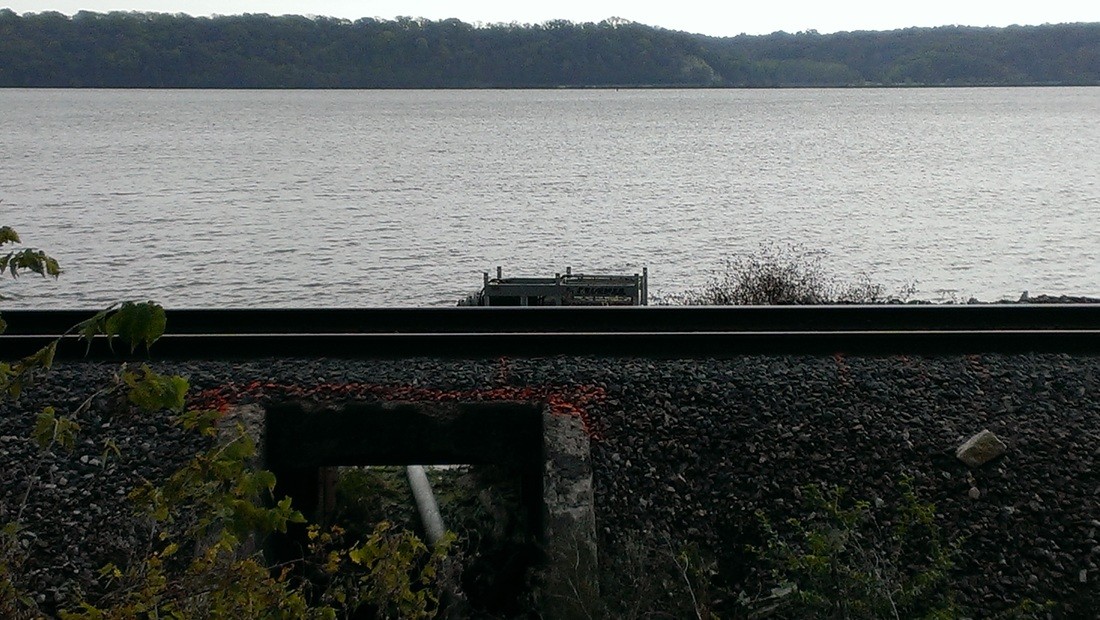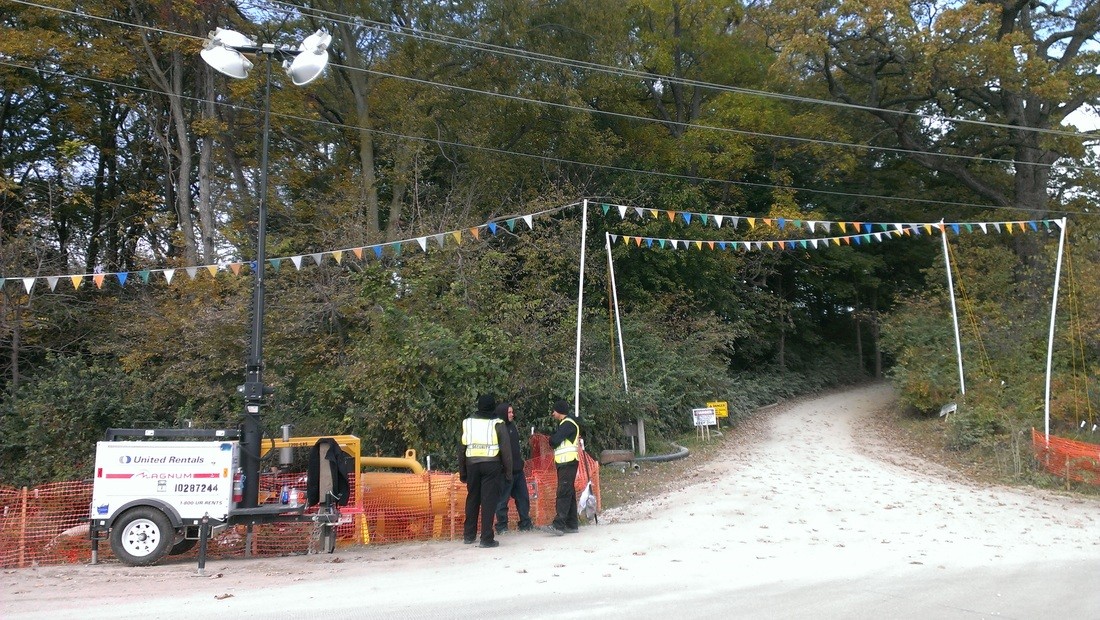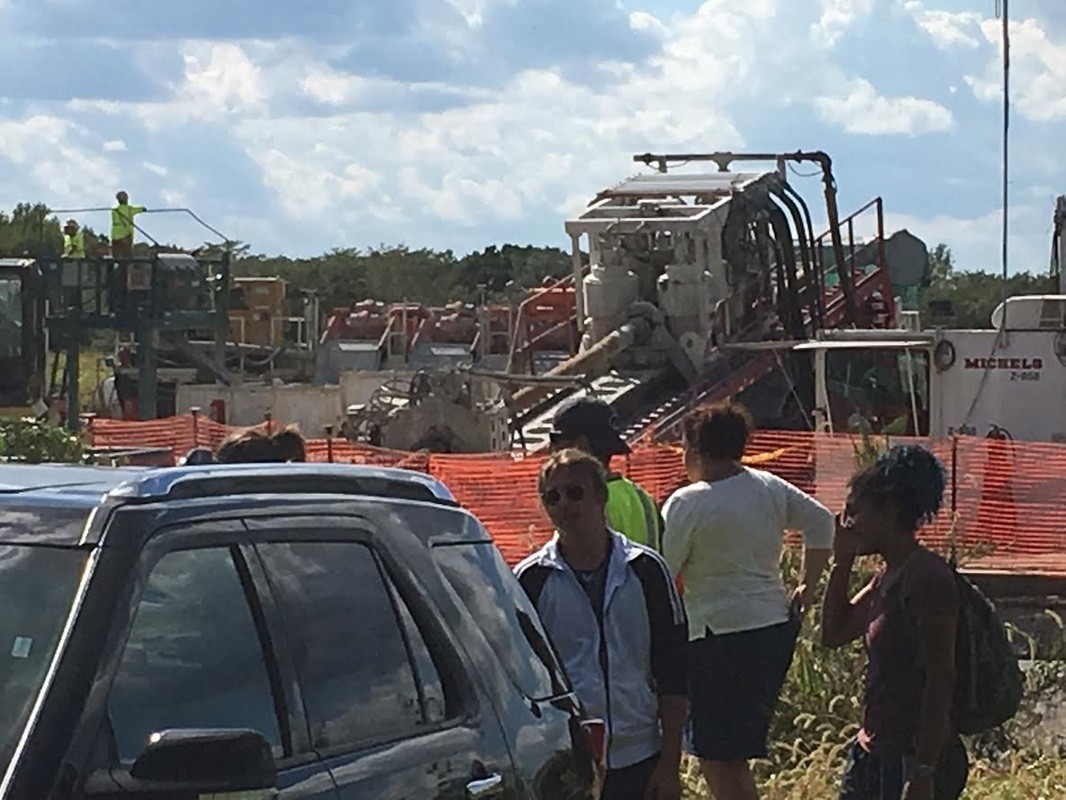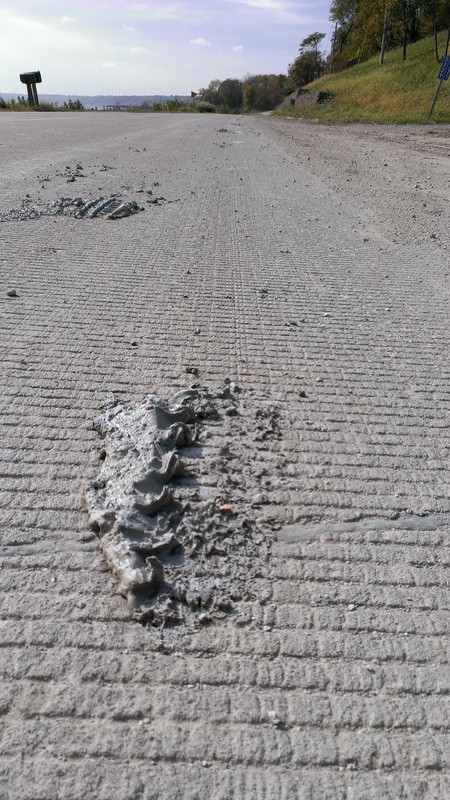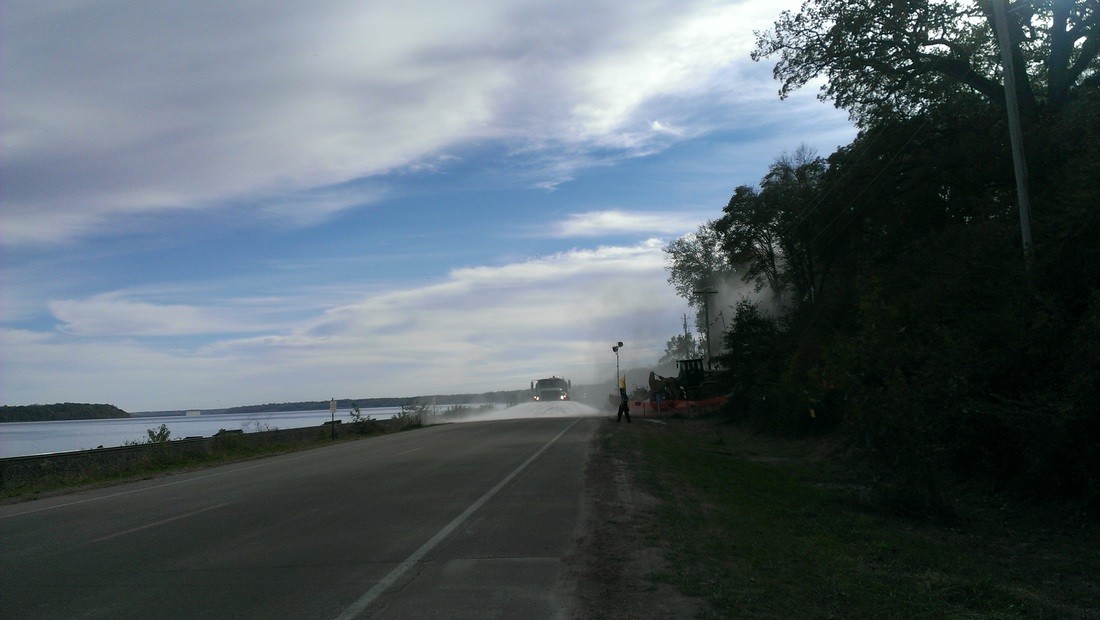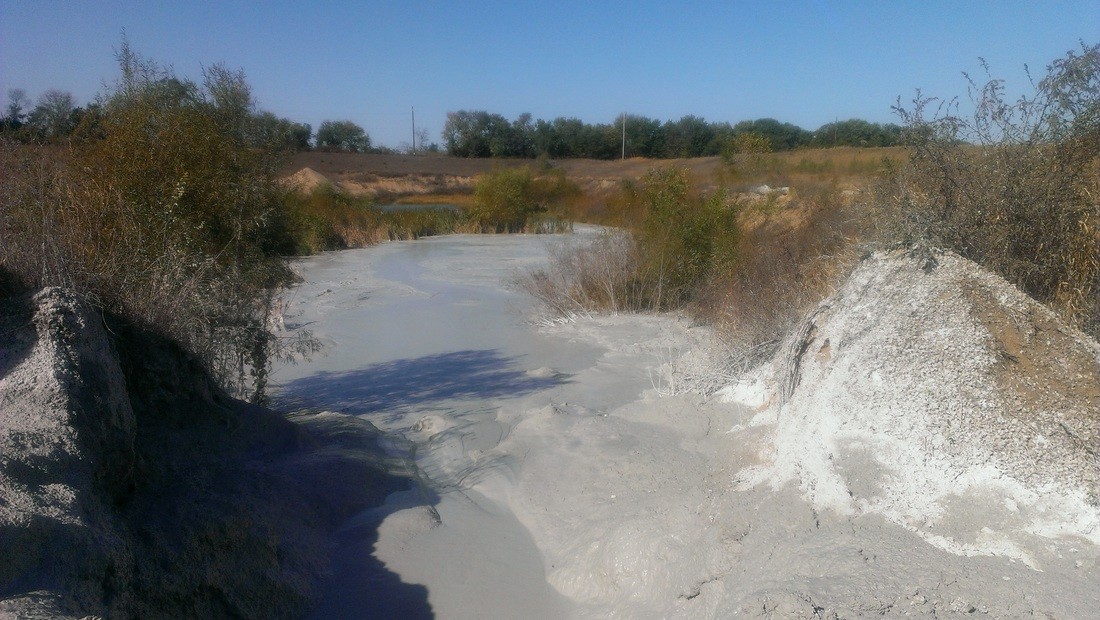Filed under: Action, Environment, Midwest
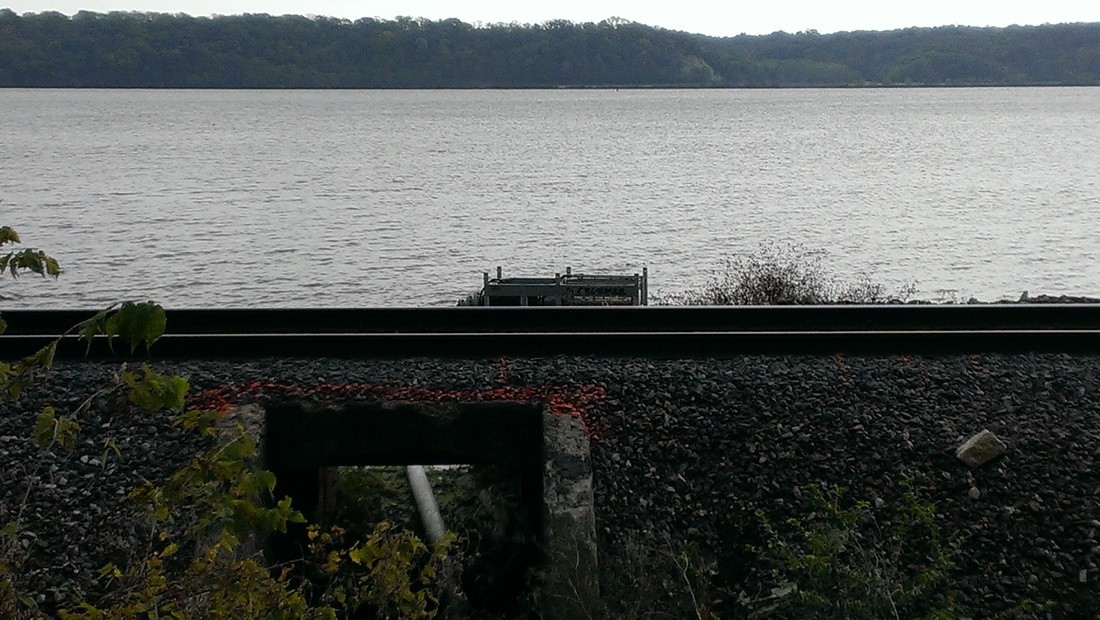
Mississippi Stand‘s latest direct action successfully stopping Dakota Access Pipeline construction in Keokuk, IA, consists of water protectors blocking Bakken trucks from entering their sludge dumpsite. What is this “sludge” and where does it come from?
Bakken has a water pump on the edge of the Mississippi River in Keokuk, which draws water and pumps it uphill to the construction site.
Water-collecting device (center) on the Mississippi River in Keokuk, IA
Water pump (yellow) and hoses leading to construction site at 3333 Mississippi River Road in Keokuk, IA
At the construction site, water is mixed with fracking chemicals and applied to bedrock to dissolve and soften it. As the chemicals are applied to the rock, a drill passes through, and the resulting sludge is removed.
The first drill bits used at the site were small-2-4″ in diameter-to create an initial passage. Now, drill bits of 8-10″ are being used. The boring will continue with increasingly large drill bits until the passage can accommodate the 30″ pipeline.
DAPL drill used to bore under the Mississippi River at construction site in Keokuk, IA
“Sludge” is the waste product of the boring operation–a mix of water, fracking chemicals, and dissolved rock. Although the exact chemicals used by Bakken are unknown, some fracking chemicals are known toxins and carcinogens. Such processes also use large quantities of water, can contaminate groundwater and soil, and pollute the air.
Sludge littered on the road by DAPL truck
Road cleanup at base of construction access road
The sludge is taken from the boring site and deposited into an unlined earthen pit in nearby Montrose, IA.
Sludge pit at 2831 US Highway 61 outside of Montrose, IA
Mississippi Stand’s blocking and occupation of the access road to the sludge dump site has led to a stop in boring while Bakken determines what to do.
Mississippi Stand continues to develop creative nonviolent forms of direct action to stop Bakken from boring under the Mississippi River and constructing the Dakota Access Pipeline. Water protectors at Mississippi Stand encourage people to join them, both in person and through monetary, legal, and other support.


